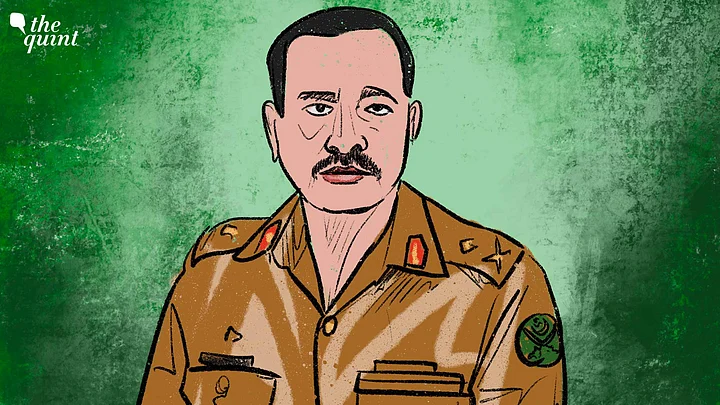For years, the chant echoing across Pakistan wasn’t “Long live the army!” but “Boots, go back!” A term once synonymous with pride and security had morphed into a punchline for political meddling, censorship, and economic privilege. But after Operation Sindoor—the brief but fiery showdown with India—something curious happened: the same "boots" people booed were now being cheered. Loudly.
Once considered pariahs in their own land, Pakistan’s generals stumbled into an accidental PR miracle—complete with field promotions, memes, and billboards featuring General Asim Munir beaming like he just won a Nobel Prize in National Redemption.
From Pariah to Patriotic Poster Boy
Before the war, the military’s image had taken quite a beating. The army was accused of engineering Imran Khan’s rise to power, and then just as easily orchestrating his dramatic fall in 2022, swapping alliances like socks.
By the 2024 elections, even the most diplomatic Pakistanis were calling the process a “badly scripted puppet show,” with the military pulling all the strings.
The February 2024 general elections were the cherry on top. PTI-backed independents secured a majority but were somehow prevented from forming a government. The outcome sparked mass protests, international eyebrow-raising, and a surge in public disillusionment.
The army’s treatment of protestors and critics didn’t help. ISI-style knock-knock jokes began sounding like horror stories. Journalists such as Asad Toor, Hamid Mir, Absar Alam, and Imran Riaz Khan became case studies in how not to treat dissent.
Add to that rolling internet shutdowns, abductions, and extra-judicial killings, and you had a military image so dented it needed more than just polish - it needed divine intervention.
Appointing retired officers to civilian post—governors, heads of state corporations, or even university vice-chancellors—also did not endear the army to civilians.
Neutrals or Not? The Internet Had Thoughts
When the military tried to rebrand itself as “neutral” in politics, Pakistanis were not buying it. “Neutrals” became the go-to meme, used in street graffiti, WhatsApp stickers, and satirical videos featuring tanks making voter registration announcements.
One biting quote from the digital sphere summed up the public mood:
“Pakistan is not a country with an army. It’s an army with a country - and a chain of bakeries.”
That wasn’t just sarcasm - it was a reflection of real economic grievances. The military’s sprawling commercial empire, including the Fauji Foundation and Army Welfare Trust, became lightning rods for resentment, especially as ordinary citizens struggled with inflation, joblessness, and a rupee doing daily yoga stretches downward.
In Baluchistan, Sindh, and parts of Khyber Pakhtunkhwa, the army was perceived not as a protector but as an occupying force.
This is the roar of a people - housewives beaten in the streets, journalists silenced with bullets, students tortured in dungeons … You have made the Pakistan Army a pariah in its own land, a fascist beast feasting on its own people.Letter reportedly circulated within the army, written by junior officers about General Asim Munir
They accused Munir of dragging both institution and nation “into the gutter” and demanded his resignation, warning: “Your time is up…”
The army was no longer seen as the guardian of the nation - but rather as the underminer of democratic dignity and public trust.
And Then Came Sindoor
Enter Operation Sindoor. A short, sharp military engagement with India in April–May 2025. Suddenly, Pakistanis had a new narrative - and it didn’t involve “neutrals,” leaked WhatsApp chats, or satirical TikToks.
According to a Gallup Pakistan poll cited by Reuters on May 21, public approval for the military surged by 93%. Even Imran Khan - fresh from calling the military a “state within a state” - offered praise. Twitter was flooded with #SaluteToBoots. Field Marshal Munir (yes, he got promoted) appeared on massive billboards nationwide under slogans like “Our Saviour” and “Protector of the Nation.”
Dawn’s editorial from June 13 headlined “From Isolation to Global Admiration” declared that Pakistan now stood “tall on the global stage” - not just as a military victor, but a responsible global actor.
The Express Tribune reported on May 14 that PM Shehbaz Sharif visited Pasrur Garrison to thank the army for “avenging 1971,” calling the operation a “historic victory.”
On May 16, Munir declared Youm-e-Tashakur - a national “Day of Gratitude.” Across the country, people celebrated the military like it had just won the cricket World Cup, cured dengue, and fixed the economy in one go.
But Not Everyone’s Buying the Shine
Yet, some voices are reminding everyone that reputational comebacks can be fleeting. Al Jazeera quoted Pakistani analysts warning of a classic “rally-around-the-flag” effect - temporary euphoria that fades once reality returns. Foreign Policy raised concerns that the military’s popularity might embolden more crackdowns in sensitive regions like Baluchistan or KP.
Support for the military tends to erode once political mismanagement or authoritarian overreach becomes apparent.Hassan Abbas, The Diplomat
Defence analyst Ayesha Siddiqa didn’t mince words either. She said, “Every time the Pakistani army loses a war, their generals pin on a medal.” Not exactly the sentiment you expect after a so-called victory.
The Final March
The army’s image, more tattered than a Karachi rickshaw seat, has undeniably been mended—at least on the surface. The boots have not just regained their shine, they have been gold-plated. But as any soldier (or savvy civilian) will tell you, it’s not the uniform that defines honour - it’s what comes after the applause.
For now, the generals are basking in public affection. But history has taught Pakistan that the military’s political honeymoon phases don’t last forever. For every "Day of Gratitude," there’s usually a “Day of Disillusionment” waiting quietly around the bend.
(Akhil Bakshi, an author and explorer, is a Fellow of the Royal Geographical Society and Explorers Club USA, and Editor of ‘Indian Mountaineer’. He is also the founder of Bharatiya Yuva Shakti, an organisation that ensures good leadership at the village level. He tweets @AkhilBakshi1. This is an opinion piece, and the views expressed above are the author’s own. The Quint neither endorses nor is responsible for the same.)
